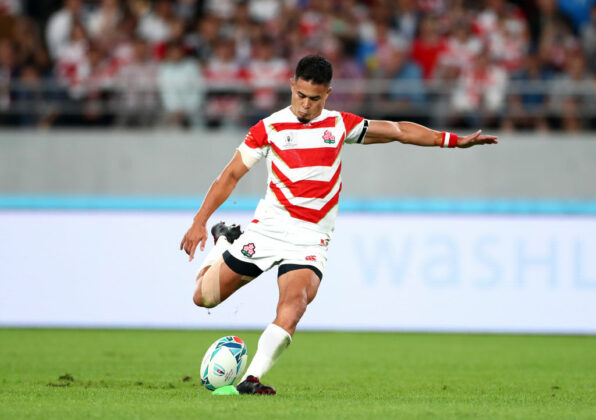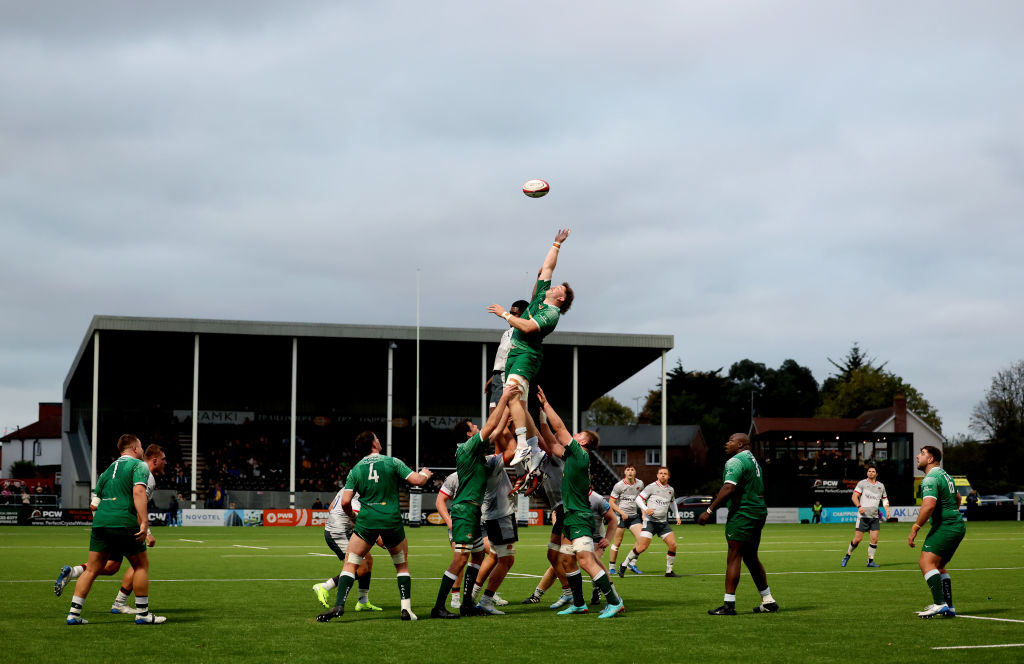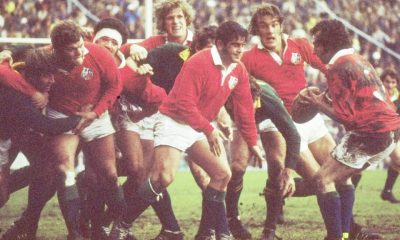
Saturday night in Oita on the island of Kyushu at the World Cup. England’s quarter-final against Australia is hanging in the balance when the French referee pings the Wallabies in front of their posts.
Owen Farrell duly nails the routine penalty, eventually. Eleven points clear with half an hour left, the goal signals the beginning of the end for the Aussies on a night when a riotous finale ensures England win going away.
But, to extend the horse-racing analogy, Jerome Garces’ awarding of the goal might well have been the subject of a stewards’ inquiry. Strictly speaking, it ought to have been disallowed. Farrell had failed to meet the deadline.
My timing of the whole procedure, from pointing to the posts to sending the ball between them, ran to 97 seconds, in other words more than half as long as the allocated one minute. My ‘vantage point’, level with a corner flag in Seat 79, Line F of the West Stand, may have made the exercise less than an exact science but only by a second or two either way.
Farrell would plead in mitigation that the ball toppled off the tee just as he was about to complete his protracted check on the geometrics of the kick. He glanced at Garces who gave him the go-ahead to replace the ball and start again.
In law, the referee ought to have been advised by the Television Match Official to let Farrell know that he had so many seconds left.
Law 21.4 (C) No delay.
“The kick must be taken within one minute from the time the player indicates the intention to kick at goal. The intention to kick is signaled by the arrival of the kicking tee or when the player makes a mark on the ground.
“The player must complete the kick within one minute even if the ball rolls over and has to be placed again. If the one minute is exceeded, the kick is disallowed, a scrum is ordered at the place of the mark and the opponents throw in the ball.”
The wording of the law needs clarity. Instead it comes with a cloud of confusion as to whether the count starts with the kicker pointing to the posts or with the ‘arrival’ of the kicking tee which cannot, by definition, happen simultaneously.
That the penalty goal is eating up more and more time cannot be disputed. Neither can the fact that Test referees, the crème de la crème, allow them to get away with it, almost always without a word appearing to be said.
Farrell is not alone. Yu Tamura takes as long over his penalties, the one in Japan’s marvellous win over Scotland having stretched the 60
seconds to 96 within a fortnight of his English opposite number exceeding it by one.
Tamura and Farrell accounted for the majority of 12 penalties during the World Cup which went beyond the limit by more than a few seconds. Conor Murray, Munster‘s long-range specialist, put himself in the same bracket, going through the same painstakingly slow process as practised by Johnny Sexton.
During his two seasons in Paris with Racing, the Dubliner fell foul of the clock as used in the Top 14. Maybe the greater surprise was that it happened only twice, once against Clermont when Test referee Romain Poite counted the Irishman out.
Why World Rugby have not seen fit to copy the French and use a similar clock at Test level only they know. The Rugby Paper’s request for a comment on their failure to enforce the law fell on deaf ears.
Slow penalties at 2019 World Cup: (on Peter Jackson’s watch)

1 min 37 secs – Owen Farrell, England v Australia
1 min 36 secs – Yu Tamura, Japan v Scotland
1 min 30 secs – Owen Farrell, England v Ireland
1 min 26 secs – Yu Tamura, Japan v Ireland
1 min 26 secs – Yu Tamura, Japan v Ireland
1 min 18 secs – Owen Farrell, England v Australia
1 min 17 secs – Owen Farrell, England v France
1 min 16 secs – Conor Murray, Ireland v Scotland
1 min 16 secs – Yu Tamura, Japan v Ireland
1 min 15 secs – Owen Farrell, England v South Africa
Of all the World Cup matches I saw, in the flesh or on television, only once did I hear a referee, Nigel Owens, making a goalkicker, an English one at that, aware that the clock was ticking. Owens had a word not with Farrell but George Ford towards the end of the semi-final against New Zealand.
“This kick has to be taken before 78,” Owens told Ford, meaning the clock had ticked off the 77th minute. Ford got there with time to spare – as have a host of kickers, notably Dan Biggar, Hendrie Pollard and Beauden Barrett – but missed his goal.
“I agree that the minute allowed for penalties is there for a reason,” Owens said. “If someone takes 61 or 62 seconds, then you apply a bit of commonsense.
“If it’s much longer than that, I give a warning, telling the kicker to speed it up next time. But 97 seconds? You do surprise me. That is far too long.”
Penalty attempts can take chunks of time out of big matches, a fact never illustrated more vividly than during the 2018 Champions Cup final between Leinster and Racing in Bilbao. The nine penalties goaled by both teams took an aggregate time a few seconds short of 15 minutes.
Before the last one, the referee, Wayne Barnes, told the kicker, Leinster’s Isa Nacewa: “It has to be kicked by 78.41.”
Nacewa, deputising for Sexton, duly chipped the winner with more than half a minute to spare. Nobody expects Farrell, Tamura, Murray or Sexton to be that rapid but a little more urgency would do the game a favour.
It could always be worse. Bryson DeChambeau, the American golfer derided by his peers for being too slow, might have been lining up penalties instead of putts…
PETER JACKSON


English Championship
What the new Championship format could mean for English rugby



























You must be logged in to post a comment Login